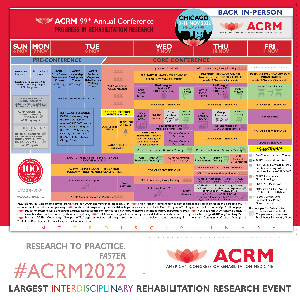Back
Symposium
Brain Injury
Caregiver Needs
Telehealth
Lessons from a Caregiver turned Entrepreneur for Traumatic Brain Injury (TBI) Rehabilitation
Tuesday, November 8, 2022
2:15 PM – 3:30 PM

Lynne Becker, MSPH
CEO / Founder
Power of Patients
Boston, Massachusetts, United States
Presenter(s)
Traumatic brain injuries share a common denominator: their effects are diverse, with varying and confusing symptoms that defy diagnosis and treatment. They confound physicians leaving victims with unanswered questions, poor prognosis, and a debilitating quality of life with insurmountable and increasing dependence upon caregivers. Family caregivers are the first to notice subtle changes in their loved one’s condition, but most caregivers are unable to articulate these changes. They dismiss them, thinking the signs may not be that significant when the converse is true. Caregivers need a simple, accurate, standardized, and customized communication solution to systematically articulate their observations of the patient before, during, and after TBI therapy. Join founder, CEO, and caregiver Lynne Becker, reviewing an app that is a caregiver and patient-powered collecting data at granular levels in real-time, delivering clinicians on-demand access providing a reduction in recall bias, personalized care plans, and real-time insights into your patient’s health
Learning Objectives:
- understand the importance a caregiver plays in the rehabilitation process for a missed TBI diagnosis.
- how to establish a protocol that works with the overt signs observed by a caregiver during and after therapy and adjusts them accordingly.
- incorporate a customized tracking system for every TBI patient and utilize a caregiver’s input

.jpg)
